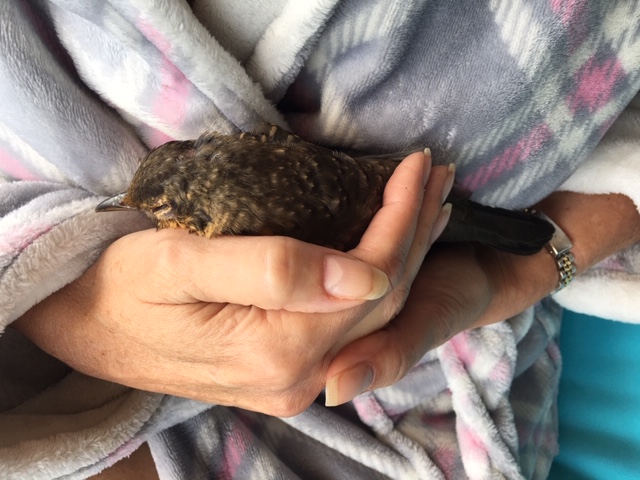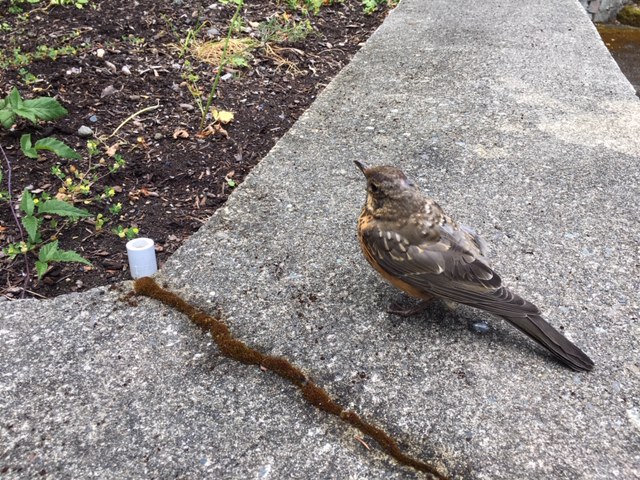Just a thought… It’s not about how much you do, but how much love you put into what you do that counts. [Mother Teresa]
Does it feel to you these days as if you’ve gone from zero, not to 60, not to 100, but to 600 km/h in a minute? While those around us who took such good care of us, putting their own concerns aside, hopefully get their well-deserved rest, many of us are still slowly climbing out of our bunkers, opening doors carefully and trying to see through the fog and mist whether we are actually safe.
In our own little lives, Rob makes appointments, invites me to come along, and I just want to stay home in either my day or evening pajamas (getting dressed, of course, to walk Molly). Yes, I have different pajamas for different parts of the day; I even have a workout pair for the stationary bike. And, oh, I despair for how my feet are going to scream for mercy as I squeeze them into the lowest possible pair of heels to “perform” when this is all over, as they’re so used to being bare or in Skechers.
There are plenty of lighter sides to search for, after what we’ve been through the last four months, but mostly, for many, there are echoes.
We subconsciously take mental note of the people not wearing masks when we get into a crowded place, reminding ourselves that we wear ours for their safety, not just our own. We read and watch the insanity of people arguing with their own “facts” against actual medical experts and scientific evidence about the efficacy of taking the smallest of precautions, while shuddering as we witness the size of outbreaks occurring in places where people felt it was a violation of their rights to do so.
(As I showered yesterday, I wondered what our great-grandparents, who wore gas masks during a time of war, in real fear for their lives, and who, if they returned home at all, bore scarred lungs and minds for the rest of their lives, would think of an over-privileged, under-educated citizen screaming over having to don a piece of cloth in a Trader Joe’s.)
Every day, Rob and I count ourselves lucky not to have been touched personally by COVID-19, although we feel the fallout in all of these lesser ways. Last weekend, we worried and awaited word as my sister, a personal home care worker (the one with whom I spent two hotel nights) checked her computer repeatedly to learn the results of her COVID test.
Thankfully, they were negative, but in those days of uncertainty, it was challenging not to go down the dark rabbit hole of counting how many people – including our father – with whom she’d come in contact. How soon, I wonder, until we can truly breathe easy again; until a cough is just a cough and not reason for concern or a quick side-eyed glance? How soon until the only proximity that worries us on the plane is if the person next to us is going to hog the arm rest? I wonder when the echoes will fade.
Some days, when the concern over what is happening around us gets to be too much, the exercise of sitting quietly and planting one’s feet on the floor, feeling quite literally grounded, helps as I concentrate on my breath – in, out, in, out – and get out of my head by moving into my heart. In and out, in and out.
But earlier this week, I had an even more tangible example of the importance of support, and of offering comfort and even a little prayer as care for the helpless came right to my door. Or, more accurately, our window. Here’s what happened.
Lying in bed, my second delicious coffee of a lazy morning in hand, I heard what I guessed was the sick thud of a bird hitting a house window. I went to investigate and, sure enough, a young spotted robin was lying in the garden just a few feet below the pane bearing marks from its collision with it. With one wing bent at an unsightly angle, its little body was vibrating with shock and fear.
I gently scooped up the bird and took it to an outside deck and, between Rob and me, we must have held it for the better part of an hour as its eyes opened; through our fingers, we felt the pulsing of its heart, strong but slowing.

We spoke to each other and to the young bird in hushed tones, watching for signs of improvement or deterioration. Then, after determining that he or she might just survive, we took our young friend outside to an elevated garden and put it down with great care, on its feet, one of which seemed to be broken (judging by the angle of its claws). Rob and I stood back and watched it hop gingerly to the protective shade of the base of a tree.

Tip-toeing out to the same garden area an hour later, I checked on our little patient and there he was. But after another hour it had gone, hopefully to return home to its family. As I tried not to think of predatory birds and pets in our neighbourhood, I thought of a saying of which I’m often reminded: nature isn’t cruel, it is indifferent.
How we take care of each other, even – or especially – the smallest and most vulnerable among us, says more about us as individuals and a human race than anything.
When we look back at 2020 (assuming COVID-19 has somehow been brought under control or has its own enemy in the form of a vaccine), what will we remember about how we treated each other?
I’ll be back here with you Monday. Thanks for sharing a few thoughts today.
